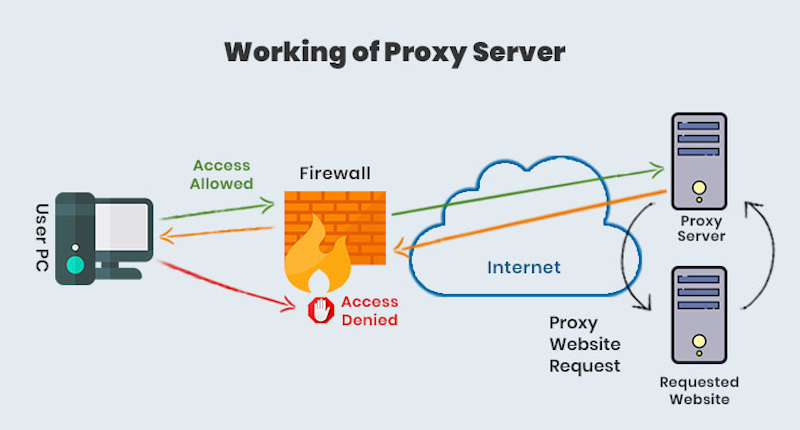An IP address is used when a computer links to the internet. This is comparable to your home’s street address in that it directs incoming data and provides a return address for any additional devices for authentication. A proxy server is basically a router or system on the internet that has its own Internet Protocol address. Let’s go into the specifics of proxy servers.
What Is A Proxy Server?
A proxy server is basically a system that functions as a junction point between consumers and the internet. As an outcome, it prevents cybercriminals from getting into a private network. It is a server that acts as an intermediary between consumers and the internet pages they surf online.

Some benefits of a proxy server:
- Enhances security.
- Keep the online activities of your employees hidden from prying eyes.
- Balance internet traffic to avoid crashes.
- Control the websites that employees and office personnel have access to.
- By caching data or compressing incoming information, you can save bandwidth.
How Does It Work?
Let’s get deeper into the internal functions of a proxy server.
Ask for Forwarding
When an individual makes a request to the internet, including downloading a file or browsing a web page, that request is forwarded to the proxy server. Instantaneously, the proxy server forwards the individual’s request to the destination server.

This layer of obscurity hides the user’s Internet Protocol (IP) address and persona, making it difficult for the destination server to trace the request’s origin back to the consumer.
Response Distribution
The proxy server intercepts it and sends it back to the user’s device when the destination server processes the request and returns a reply. Once again, the user’s identity is protected and not revealed. At What Is My IP, you can also check your IP addresses.
Caching
Caching methods are built into many proxy servers. This means that frequently accessed content, such as images, scripts, or full web pages, is cached on the proxy server.
Successive requests for the same information can be delivered directly from the cache, minimizing the burden on the destination server and boosting response times. This functionality is very useful on high-traffic networks with limited capacity.
Filtering and Access Management
Proxy servers can be set up to filter online content, restrict particular websites, and limit access according to login information or entitlements. Organizations frequently use this feature to enforce internet usage regulations, improve cybersecurity, and properly manage bandwidth.
Load Distribution
Proxy servers can split incoming requests among numerous destination servers in enterprise organizations or for websites with significant traffic. This load balancing guarantees that no single server is overburdened, optimizing performance and providing redundancy in the event of a server breakdown.





